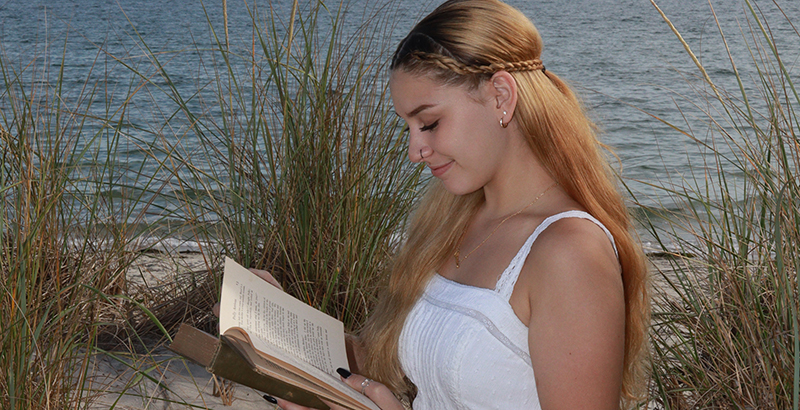Dear Adult Leaders: Ask Us What We Think. Engaging Young People in Decision-Making Strengthens Our Systems

This piece is part of “Dear Adult Leaders: Listen to Youth,” a four-week series produced in collaboration with America’s Promise Alliance to elevate student voices in the national conversation as schools and districts navigate how to educate our country’s youth in a global pandemic. In this series, students write open letters to adult leaders and policymakers about their experiences and how, from their perspectives, the American education system should adapt. Read all the pieces in this series as they are published here. Read our other coverage of issues affecting young people here. This week’s letters focus on the issue of including youth in the decision-making process.
Dear school principals,
When the COVID-19 pandemic forced schools to close in the spring, there was no communication between my school system and students. Each teacher approached remote learning differently, and students had no way of discussing what teaching strategies were most beneficial.
Then, when the Breonna Taylor case came to light, I was frustrated, angry and eager to process the reasons behind this tragedy. I wanted to talk about it, to make my voice heard, but my friends and I had no platform to engage in conversation outside our social media feeds.
Although these two issues are different, together they show why it is so imperative that schools find ways for young people to share our voices and opinions. This is especially true when it comes to pressing issues like remote learning and racial injustice. Schools should seek student input as they consider plans for instruction during COVID-19 and they should create opportunities for students to discuss the racial injustice that continues to affect people of color.
At the beginning of the COVID-19 pandemic, students such as myself experienced unexpected closures. My district was very disorganized for the rest of the school year. Each teacher approached remote learning differently, some were more distant than others. I feel as if the lack of communication between students and teachers made this difficult time even easier for everyone to slack off. Teachers seemed actively less involved, which rubbed off on students. Although this was new and difficult for everyone, as students we had nowhere to turn to voice the benefits and harms of remote learning in order to improve it.
The most frustrating part of being a high school student is having a voice that goes unheard. In 2020, youth play such a vital role in society and in social movements. As students, the formative high school years are a chance to mature intellectually, to soak up the information around us, and learn to use our voices to shape the environment around us. This should begin with encouragement from schools to enhance these social skills.
Yet students often don’t have a platform for providing feedback about anything, even community issues outside of school. Our opinions are often deemed irrelevant merely because of our age. Regardless of my requests to shed a spotlight on societal issues, there has been no room in the school system for myself and others to engage in such conversations. Without these opportunities, we are essentially stripped of our ability to have a say in school matters and to explore and push for change on important issues in our communities.
If done effectively, giving young people platforms to express their opinions, provide feedback, and influence decisions can provoke constructive dialogue that ultimately improves the current systems in place. Had my school done this in the beginning of the pandemic, they would’ve had the ability to sooner collect student feedback to better serve their needs. The current system doesn’t include student input. Student involvement can lead to better decisions and outcomes because our input is based on our firsthand experiences. Participation promotes development of young people and strengthens our decision-making skills.
Acknowledging the importance of youth participation and giving them a platform does not diminish the authority of educators and school leaders. Instead, collaboration between adults and young people can help strengthen relationships between students and adults because students feel like their voices and contributions are valued and it only further strengthens our systems. Youth participation promotes real opportunities for us to be involved in decision making that directly affects our lives. As an influential generation of people, our voices should be valued too.
Sincerely,
Olivea Doyle, 17
New Bedford High School
New Bedford, Massachusetts
This series highlighting the perspectives of American youth is in part sponsored by Pure Edge, Inc., a foundation that equips educators and learners with strategies for combating stress and developing social, emotional and academic competencies.
Get stories like these delivered straight to your inbox. Sign up for The 74 Newsletter

;)
